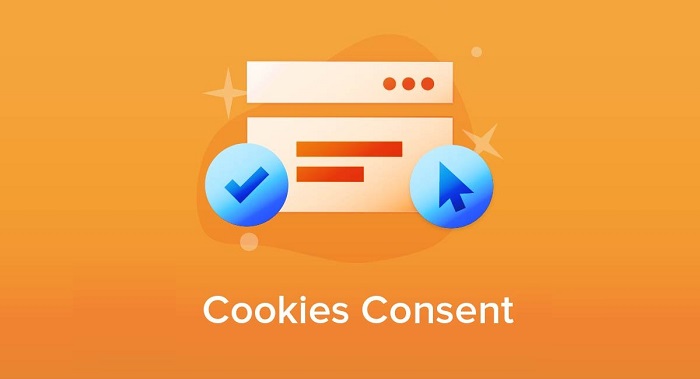Cookie consent is crucial for businesses collecting data from EU citizens and residents. Learn more about cookies and what they do.

What are cookies?
A cookie is a small piece of text, which is saved on a website visitor’s computer, when they first enter a website. The personal data collected from this small text file is very useful for businesses as it can help them optimize their marketing efforts. By collecting and analyzing personal data, businesses can gain insights into users’ behavior and thereby perform more targeted marketing activities.
Cookie consent as a concept
Since May 25th, 2018, the phenomenon cookie consent has become less of a buzzword and more of a reality for organizations targeting consumers in the EU. Cookie consent means that website users must actively decide whether they will allow their personal information to be sent to an organization or a third party. In other words, organizations need to obtain consent before activating the cookies.
Likewise, users of the website should be clearly informed about the organization’s wish to use cookies and the consequences of accepting cookies. The language used to explain this should be concise and easy to understand, so that usersare well-informed about the data processing.
Non-compliance can result in heavy fines. Google was fined £91 million in 2020 for breaking the cookie consent law.
How do I ensure compliance in my company?
Firstly, a cookie consent should be clearly visible to visitors on the website. This can be done with a banner. This banner should immediately appear when the user is entering the website.
Secondly, make sure that there is a ‘Link to policy”. You have to put in a link in the aforesaid banner that will lead the user to a landing page with information about cookies in general and what they give access to.
Thirdly, consent is required, and until it is given, you will need to block all cookies and scripts.
Lastly, make it is easy for the user to give or refuse consent. This can be done through visual opt-ins, e.g., a “thumbs up” for when the user wants to accept the cookies.
Cookie checker is a perfect tool
A cookie checker is a very useful tool for checking whether your website is GDPR compliant or not.
Most cookie checker tools are free and to find one, you just need to make a google search on the term. Then you can choose between the different results, but the cookie checker from CookieBot is free and gives you accurate results.
After entering the website, you will now be able to check your website. Do so by copying and pasting your URL into the tool.
The tool has two different features: “check” and “fix”.
“Check” gives you an overview over the cookie settings of a website. The tool will offer you information on each cookie.
“Fix” is useful foridentifyingGDPR issues.
Using a cookie checker is a cheap way to work your way to GDPR compliance, minimizing the likelihood of breaches and fines.




